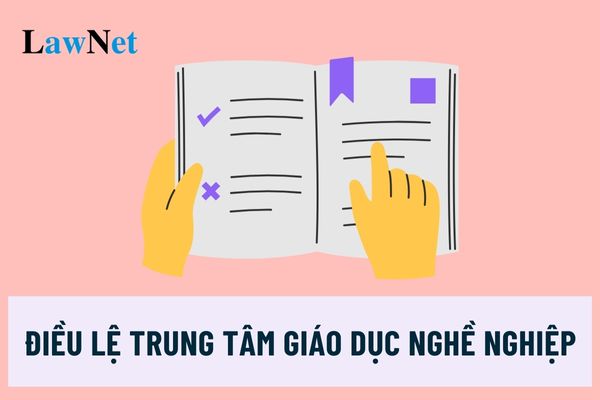Vietnam: Charter of vocational education institution (latest)
Charter of vocational education institution (latest)
The latest charter for vocational education institutions (the Charter) is stipulated in Circular 57/2015/TT-BLDTBXH.
The scope and subjects of application of Circular 57/2015/TT-BLDTBXH are defined in Article 1 of Circular 57/2015/TT-BLDTBXH and supplemented by Clause 2, Article 45 of Circular 05/2020/TT-BLDTBXH as follows:
- The Charter regulates the operation of public vocational education institutions and private vocational education institutions (hereinafter collectively referred to as vocational education institutions).
- The Charter applies to vocational education institutions and organizations or individuals participating in vocational education activities at vocational education institutions.
- This Charter does not apply to district-level public vocational education institutions.
How many types of vocational education institutions are specified in the charter?
According to Article 4 of Circular 57/2015/TT-BLDTBXH, some contents specified in Article 5 of Circular 18/2018/TT-BLDTBXH are repealed and regulated as follows:
Types of vocational education institutions
1. Vocational education institutions in this Charter are classified into the following types:
a) Public vocational education institutions;
b) Private vocational education institutions.
2. The agencies directly managing public vocational education institutions are agencies or organizations assigned to manage vocational education institutions in accordance with the law, including: Ministries, ministerial-level agencies, central bodies of political and social organizations; Departments, Committees, agencies under the provincial People's Committees; District, town, and city-level People's Committees.
The vocational education institution charter specifies the following two types of vocational education institutions:
- Public vocational education institutions;
- Private vocational education institutions.

Charter of vocational education institution (latest) (Image from the Internet)
What are the duties and powers specified for vocational education institutions in the charter?
According to Article 7 of Circular 57/2015/TT-BLDTBXH, the provisions are as follows:
Duties, powers, autonomy, and accountability of vocational education institutions
1. Vocational education institutions perform their duties and exercise their powers as prescribed in Article 23 of the Vocational Education Law and other relevant laws.
2. The autonomy of vocational education institutions is implemented in accordance with Article 25 of the Vocational Education Law and some specific provisions as follows:
...
The duties and powers of vocational education institutions include:
- Developing strategies and plans for the development of vocational education institutions.
- Organizing vocational training for various levels of vocational education as follows:
+ Vocational education institutions organize elementary-level training, general vocational education, and career counseling for students according to the general education program;
+ Secondary vocational schools organize intermediate and elementary-level training;
+ Colleges organize training at the college, intermediate, and elementary levels.
- Organizing continuous training as specified in Section 2, Chapter III of the 2019 Vocational Education Law of Vietnam.
- Autonomously recruiting and managing students.
- Publicly announcing training goals, programs, conditions ensuring the quality of teaching and learning; tuition fees and tuition fee exemptions and reductions; training quality control results; vocational education certificates and diplomas; job positions after graduation, and quality control measures.
- Organizing teaching and learning according to training goals and programs; awarding vocational education certificates and diplomas to students; organizing practical and internship programs at enterprises via contracts with enterprises.
- Using accredited foreign training programs for training tasks as per legal regulations.
- Cooperating with domestic and foreign training activities as specified in Section 2, Chapter III of the 2019 Vocational Education Law and relevant laws.
- Mobilizing, managing, and using resources in accordance with the law.
- Developing and investing in facilities and training equipment to meet standardization and modernization requirements.
- Recruiting, using, and managing teachers, administrative staff, public employees, and laborers; organizing internships for teachers at enterprises to update and improve vocational skills; involving teachers, public employees, laborers, and students in social activities.
- Conducting quality control and assurance in training as required.
- Providing free advice on training and employment to students.
- Establishing enterprises, conducting scientific and technological activities, production, business, and services as prescribed by law.
- Incorporating legal, linguistic, cultural, and customary content related to the destination country of workers and relevant Vietnamese laws into training programs when training workers going abroad.
- Conducting scientific research to enhance training quality; applying research results, and transferring technology into production, business, and service practices.
- Implementing democratic procedures in vocational education institutions.
- Enabling learners, educators, and society to participate in evaluating vocational training quality.
- Complying with information, reporting obligations, and subject to supervision, inspection, and examination as prescribed by law.
- Other duties and powers as prescribed by law.

